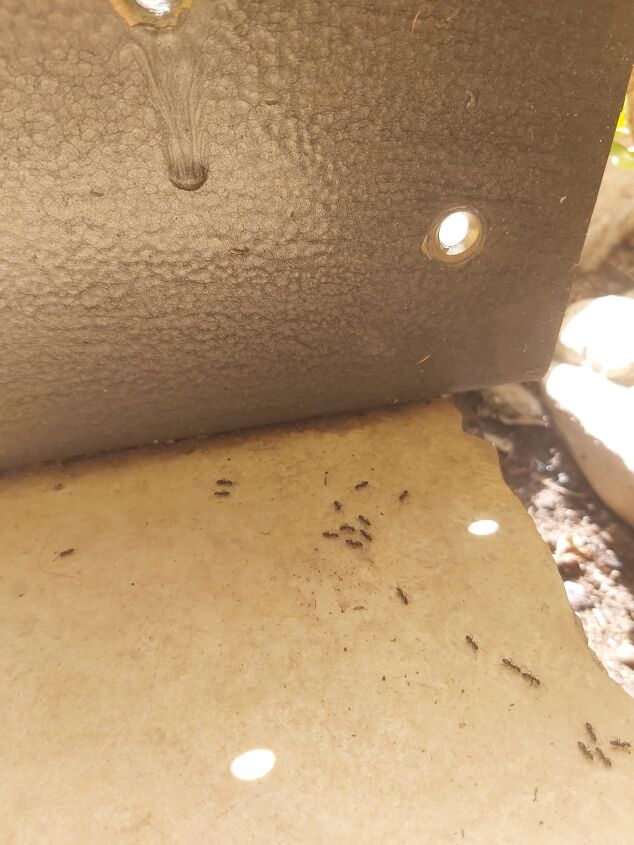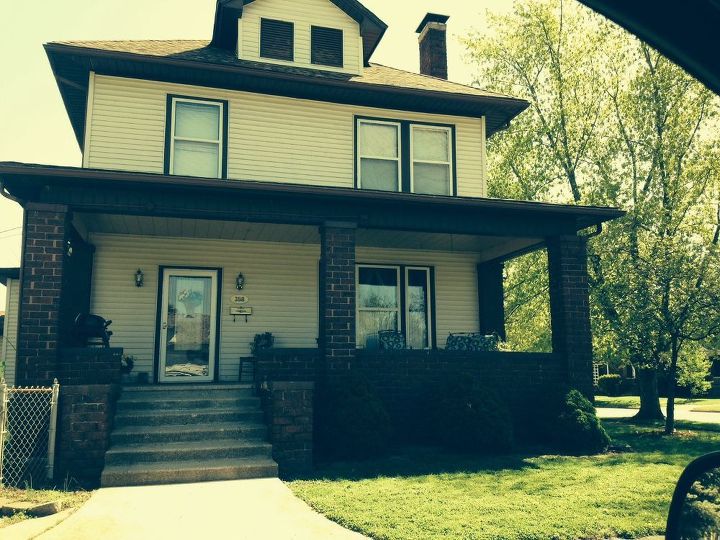Comparing estimates (Plumbing).

All told me that my tank was not up to code (16yrs old) and I would need an expansion tank in addition to the new tank. One told me I didn't need an expansion tank since I had a thermal expansion VALVE already BUT, that I needed the gas line replaced with a stainless steel, poly coated flex line. None of the others mentioned that. Just for the record, the company saying "no expansion tank but a stainless steel line" was the highest quote.
My question is ... they all seem to know what they are talking about, how can I find out which is truly required? I've tried looking up the code and I am confused. Here is what I found and have been using to do research: "Section 607.3.2 of the Standard Plumbing Code states that if a system with a water heater has a backflow prevention device installed and as a result thermal expansion causes an increase in pressure, a device must be fitted to limit the pressure to 80 pounds per square inch (psi) or less."
-
I believe that one of those quotes came from Atlanta Plumbing Plus and we are about in the middle of the range you were quoted. I'll try to answer all of your questions. First, expansion tanks are the correct code requirement. Expansion valves are still allowed but only when the water heater is in a VERY confined space and there is no room for the expansion tank at all. According to my plumber you have enough room for an expansion tank and so we would be required to install it. Code also requires us to install a new gas flex line in place of the old hard copper gas line. My plumber included that in the water heater price quoted to you even though it is not listed as a separate line item. So how do you differentiate between plumbing companies. First, it's not enough to say the are "apparently all licensed" you need to check the license card of the plumber that comes to your home. It is a small blue card and the name on it should match the name on the person's driver's license (some unethical companies have been known to make photo copies of one plumber's license and give it to their "plumbing technicians." Others say the technicians are working under the company's license. In Georgia, this is only OK if there are two plumbers on site and one of them has a Master's license and is supervising the other. If only one plumber is working on site, he has to be at least a Journeyman Plumber. Next, you should ask to see copies of the company's workmen's compensation and general liability insurance certificates to be sure that the company is bonded and insured. The good companies give their plumbers copies to carry with them. You can also ask for references from other satisfied customers and ask what kind of warranty the company places on their workmanship. Our plumbers have a joke that some companies offer a "concrete warranty" - The warranty ends when the tires of his truck leave the concrete of your driveway. Our labor warranty on a water heater is for one year; but, realistically, if there was a problem with the workmanship it would show up in the first few weeks. I hope this answers all of your questions. If not, feel free to call me for more info even if you don't plan to use Atlanta Plumbing Plus to do the work.
 Atlanta Plumbing Plus
on Nov 09, 2011
Helpful Reply
Atlanta Plumbing Plus
on Nov 09, 2011
Helpful Reply -
-
Wow! I'm so glad the question was posted and answered. We are about to have to go through the same process. Thank you.
 Carol
on Nov 09, 2011
Helpful Reply
Carol
on Nov 09, 2011
Helpful Reply -
-
There it is. The wording "backflow prevention device" tripped me up. Wasn't sure if a valve was considered a device. Thanks for the clarification. Now, off to count my pennies and make a decision. Thanks APP and good luck, Carol.
 Teresa D
on Nov 09, 2011
Helpful Reply
Teresa D
on Nov 09, 2011
Helpful Reply -
-
Carol M. If you think you are about to go through that same process, don't wait until the water heater is leaking or not working at all. Start to shop early so you are not rushed in to making a bad decision.
 Atlanta Plumbing Plus
on Nov 10, 2011
Helpful Reply
Atlanta Plumbing Plus
on Nov 10, 2011
Helpful Reply -
-
If you want to get another opinion call Jeff. 404-667-8363 I have been working with him for about 15 years and he does good work and has reasonable pricing too. He'll tell you straight up what you need or don't need. Good luck!
 Paul M
on Nov 10, 2011
Helpful Reply
Paul M
on Nov 10, 2011
Helpful Reply -
-
Thank you. This have an a valuable service being new to the area.
 Carol
on Nov 10, 2011
Helpful Reply
Carol
on Nov 10, 2011
Helpful Reply -
-
Atlanta can you provide a bit more about the requirements? Expansion tank on a hot water heater? I understand using this for water hammer, but am I missing something here? Also backflow device? On domestic water supply? Or is this all for a boiler used to heat the house? This I understand. You folks do things a bit different down south then we do up here. But just cannot figure out why you would need this on a domestic system.
 Woodbridge Environmental Tiptophouse.com
on Nov 10, 2011
Helpful Reply
Woodbridge Environmental Tiptophouse.com
on Nov 10, 2011
Helpful Reply -
-
Woodbridge code for water was changed here last year to require everyone to put a back flow preventer in their system domestic and commercial. Just another way for our wonderful government to poke their noses into our business. I guess they are worried about something, who knows what the real reasoning is behind their decisions. We should but for some reason we the people are left out of the loop.
 Paul M
on Nov 10, 2011
Helpful Reply
Paul M
on Nov 10, 2011
Helpful Reply -
-
Have you tried Mr. Plumber or Superior Plumbing????
 Frank C
on Nov 10, 2011
Helpful Reply
Frank C
on Nov 10, 2011
Helpful Reply -
-
I didn't mention anything about a backflow device in my post. Just the expansion tank and expansion valve. If someone is telling Teresa D that she needs a backflow device, she needs to ask that plumber a lot more questions. The expansion tank is a code requirement for water heaters in Georgia. It has been for many years now. It is not required on a tankless water heater. It's purpose is to contain any excess water produced if the water overheats and expands, Thus, it extends the life of the main tank. Expansion valves used to be allowed, but now we are allowed to leave them in place only if the water heater is in such a confined space that we cannot fit the expansion tank in close proximity to the water heater. They dump the water in to the city sewer line so the water heater could dump water for a long time before the homeowner realizes there is a problem. We don't put backflow devices on water heaters. We do sometimes use them on recirculating water lines that carry hot water to portions of large houses that have bathrooms so far away from the water heater that it takes forever to get hot water to them. I'm very sure my plumber didn't offer one to Teresa D both because all my guys are fully licensed and follow code and because I read a copy of the quote he gave her.
 Atlanta Plumbing Plus
on Nov 11, 2011
Helpful Reply
Atlanta Plumbing Plus
on Nov 11, 2011
Helpful Reply -
-
So the expansion tank is used to keep the pressure even if the tank overheats. What happens to using the T&P valve. That is what its there for. I would assume this is required because of the expanded use of the PEX tubing in homes now? I understand the use of backflow devices. For fixtures that are not potable water but require water to feed them. Such as boilers and outside hose bibs. I think on the hot water recirculation systems your using a back check valve. Often used to prevent water from flowing the wrong way or to stop convection from occurring in a closed loop.
 Woodbridge Environmental Tiptophouse.com
on Nov 11, 2011
Helpful Reply
Woodbridge Environmental Tiptophouse.com
on Nov 11, 2011
Helpful Reply -
-
my water heater burst and flooded my basement and when I started calling around, you would be surprised how some people are quick to jack up the price when they know you're a bad spot. After calling 8 plumbers and getting 7 quotes, I found a great plumber who was upfront and his pricing was fair. call Arrowhead plumbing at 678-226-2959
 Michelle
on Nov 16, 2011
Helpful Reply
Michelle
on Nov 16, 2011
Helpful Reply -
-
Thanks Michelle! It's a funny coincidence but that is who is doing the work for me. I had his number from a few years ago and forgot I had it. He helped me out with a burst pipe a couple of years ago.
 Teresa D
on Nov 16, 2011
Helpful Reply
Teresa D
on Nov 16, 2011
Helpful Reply -
-
Woodbridge, I am a little late on this post but, down here, the water pressure coming in from alot of municipalities are in excess of 80 psi (some areas as high as 120 psi). Because of this, the water supply coming into the homes require pressure reducing valves be installed in-line to keep pressures in the 45-75 psi range. Doing this makes the plumbing systems closed. Yes, even a 40kbtu water heater in a closed loop can build up enough pressure to activate T&P. T&P relief valves are not intended to be a means of permanent thermal expansion control (for emergency use only). This is why they require thermal expansion tanks or valves be installed on domestic water heaters. I go on a lot of calls for new water heater installations with leaky T&Ps and the problem is almost NEVER a defective T&P. It's always either an expansion tank has failed or was never installed. Replace or install one and never get called again. To the original poster, a good way to know what is "required", for future reference is to have your plumber to pull a permit so that the local code official actually inspects the install and either passes or fails it!
 Plumber26
on Jun 18, 2012
Helpful Reply
Plumber26
on Jun 18, 2012
Helpful Reply -
Related Discussions
How do you use washi tape?
Looking for ideas on how to use washi tape for DIY projects and crafts.Do you use it on notebooks, gift wrap, and journal pages?How about decor pieces and organizing ... See more
Is washi tape recyclable?
I'm moving to a new place and taking down my renter-friendly washi tape decor when I thought... wait, isn't this just paper? Can I chuck the washi paper in the recycl... See more
Can you write on washi tape?
I have some gorgeous translucent washi tape and I want to use it to label items. Has anybody written on washi tape before? If so, what type of pen/ink works best to s... See more
How effective are bay leaves for ants?
I'm dealing with a terrible ant infestation, and I heard that bay leaves can be a great way to keep them away. Do you know if that's true? If it is, how can I use bay... See more
Does anyone have any good suggestions on how to keep squirrels out of my bird feeders?
I have tried the crushed red pepper in the bird seed, and have tried putting vaseline on the pole that holds the feeders....any other suggestions? I will at times hav... See more
How to clean a mirror without streaks?
Every time I clean my mirrors, they end up having tons of streaks and almost look worse than before I started. What could I use to clean them that won't leave streaks... See more
How can I inexpensively add some "wow" to my very brown/tan house?
My house is 100 years old and rock solid but it is bland. It needs someone's creative suggestions!



